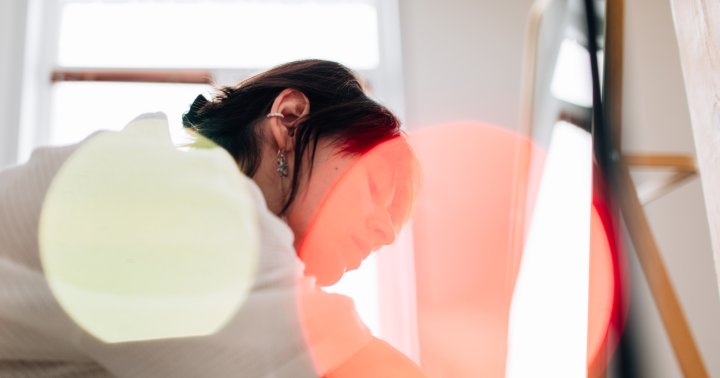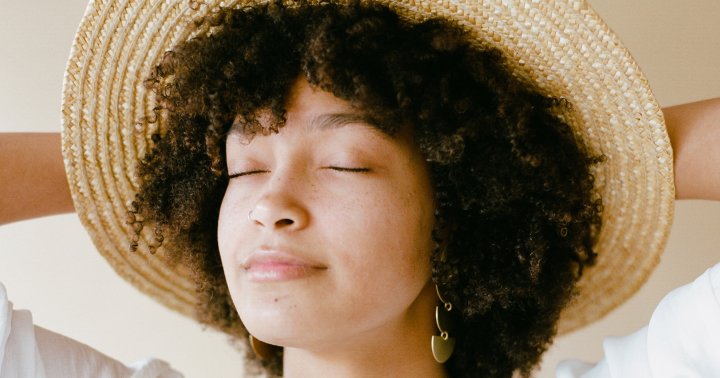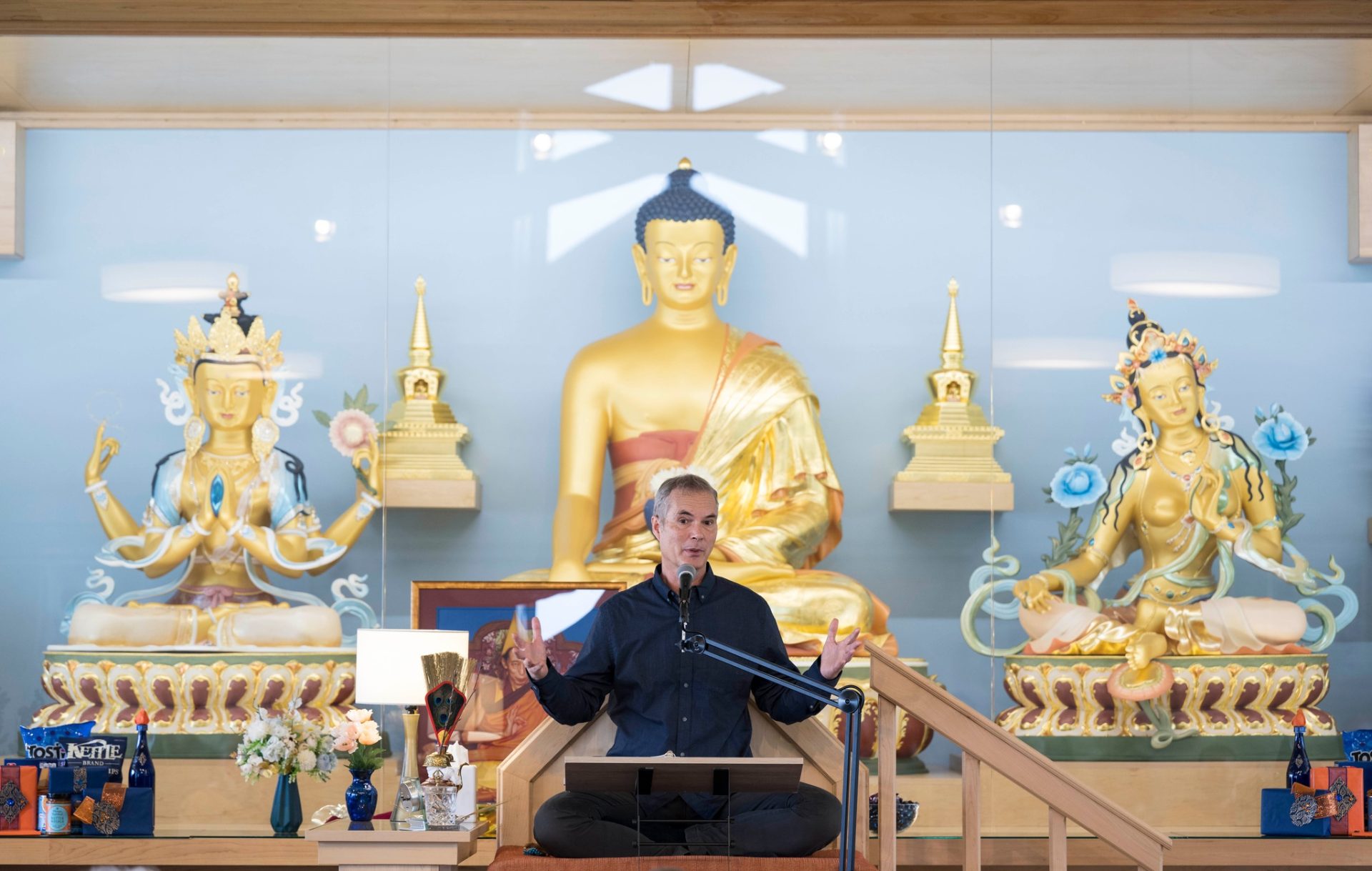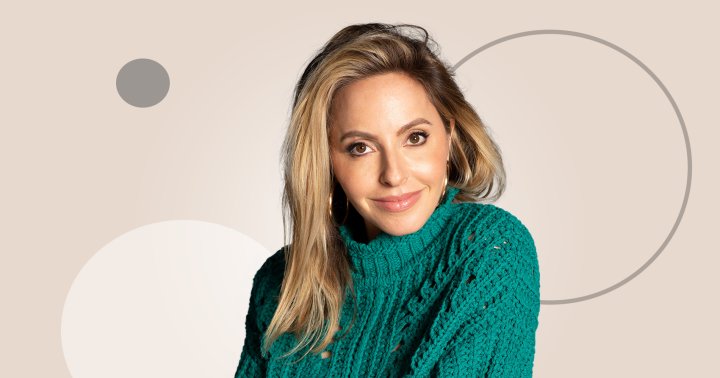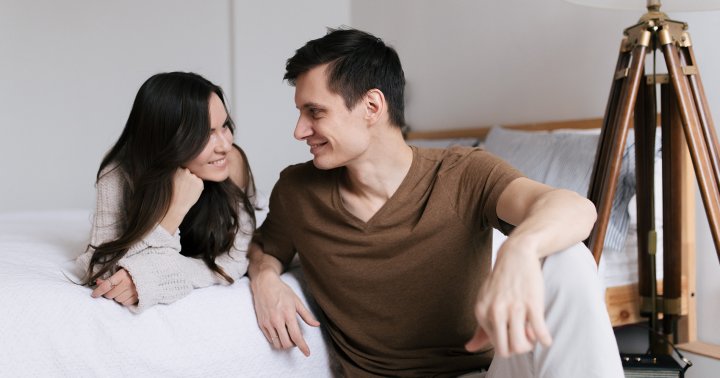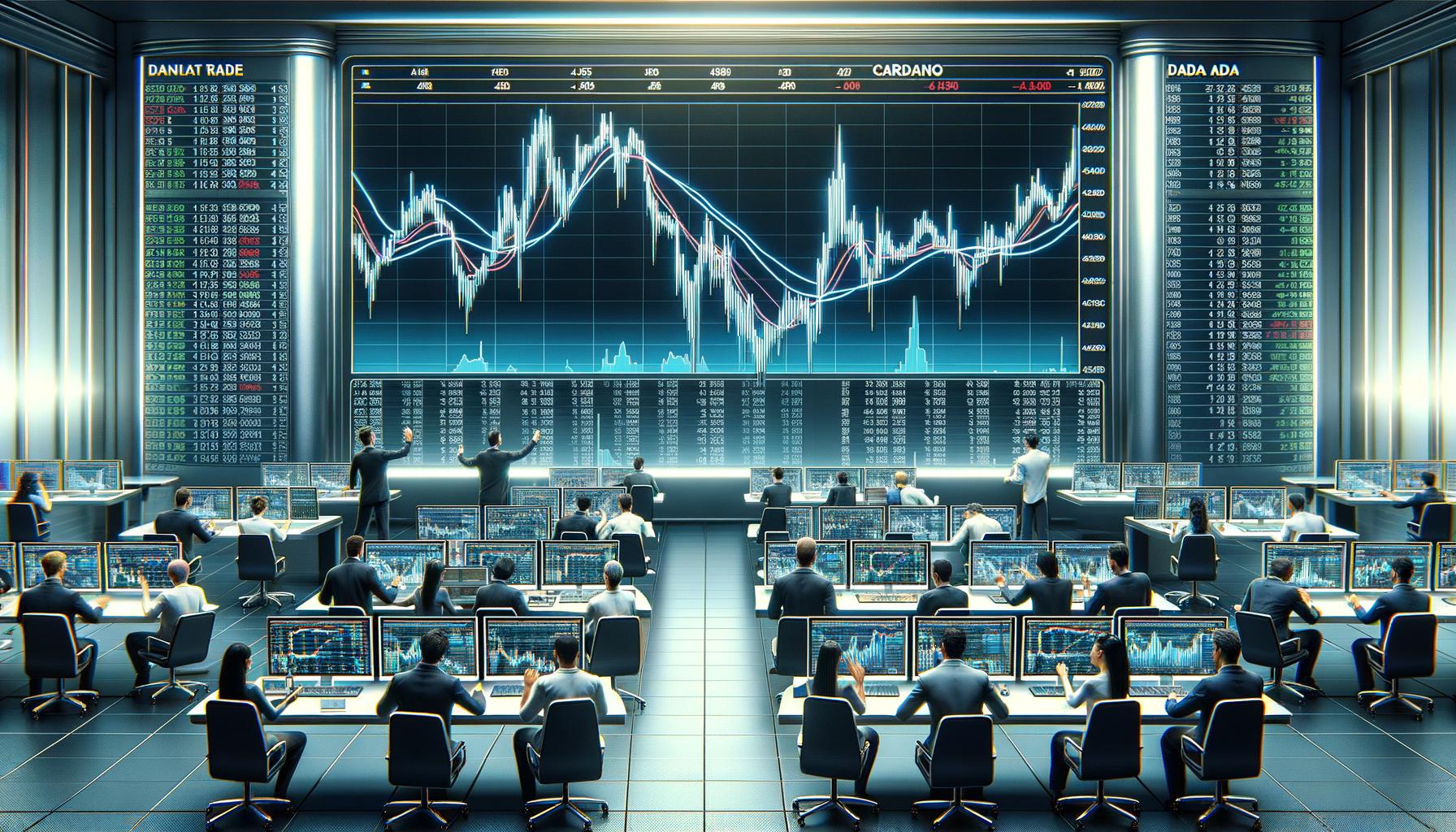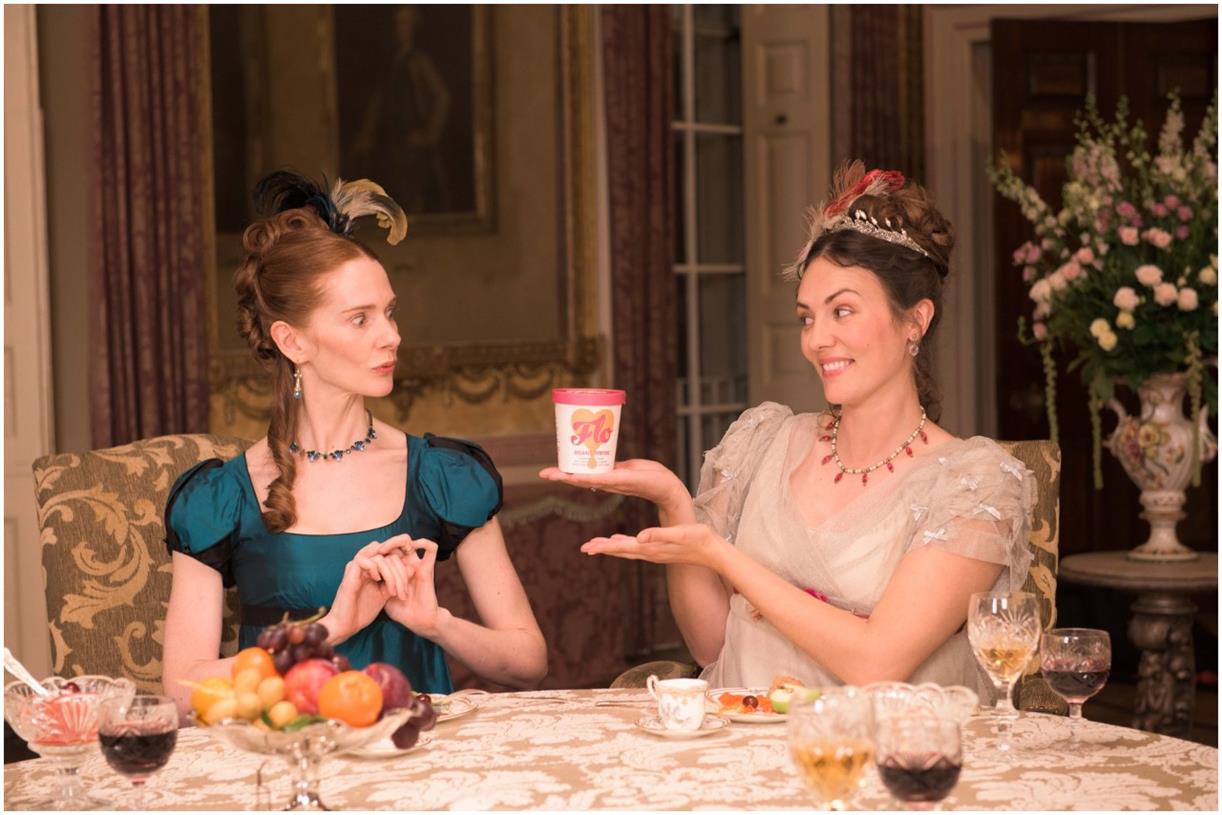We Don’t Want to Miss This
To turn toward a spiritual path is to decide that we’re no longer content to face beauty with blindness. It’s to choose to see what we couldn’t see. The post We Don’t Want to Miss This appeared first on...
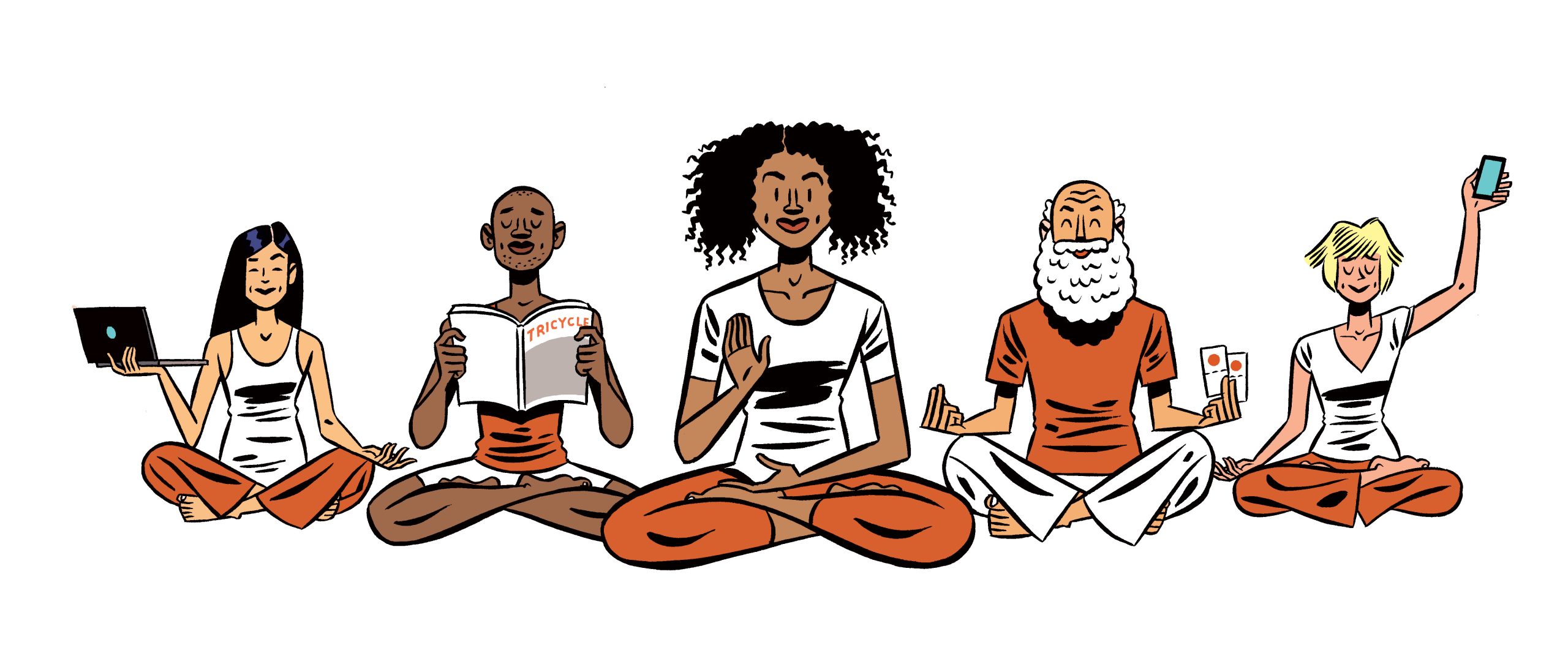
The day is overcast, but the sun’s already promising to break from the clouds. Magpies warble in the Indian laurels, dueling with the gurgling of the fountain at the center of the square. Sitting on a piece of cardboard with his back to the fountain’s large rectangular stones is an old blind man. His weathered face, wrinkled like that of an old elephant, could be 46, 62, or 75. It’s hard to know with those for whom living is never easy. The old man sits with his legs outstretched, a battered hat that used to be gray but is now blacker than soot, upturned next to him, and a crude, handwritten sign that reads: “A little charity, please.”
Every day he sits, his back to the fountain and his head to the sky, as if listening intently to a voice the rest of us can’t hear. He sits in the early morning chill, and when the sun’s light has cleared the buildings on the other side of the square, he opens a red, beat-up parasol that looks even older than he does. When it rains, he hobbles over to one of the cafés and squats under the awning, and if one of the waiters is feeling magnanimous, he’ll call the man in, ease him into a chair, and give him a cup of milky coffee. But most days he’s alone with his thoughts and the sound of the coins that drop now and then into the hat, too few to count for anything. Dozens of people hurry past, young women from the ad agencies nearby, middle-aged bankers leaving trails of cigar smoke in their wake, a man pushing a stroller. Not one of them ever stops or even slows down their pace. They’ve seen the man. They’ve seen him. And seeing nothing of note, they hurry past, maybe now and then fishing a coin out of their pocket, mostly to assuage their own guilt.
One day, shortly after lunch, a young man with the kind of face that pulls smiles walks by the old man. He’s smartly dressed in a suit and freshly polished shoes, newly done at the shoeshine a few doors past the café on the corner. He carries a briefcase in his hand that he swings jauntily (who does that still?), and when he sees the old blind man, he stops. Pulling up his trousers, he squats on the ground, his briefcase planted between his knees and his face level with the old man’s.
“How’s it going?” he asks.
The old man can hear the smile. “Slow day,” he replies in the voice of someone who, like his money, is neither counting nor being counted.
“As usual, eh?”
The old man nods gravely.
“You know what you need?” the young man says, not waiting for an answer. “A better sign.”
He picks up the piece of cardboard, appraises it. Then he takes a marker out of his briefcase, and quickly writes something on the back.
“There,” he says, propping the sign next to the hat, which for some reason looks a tiny bit less lonely. “I have to get back to work,” he adds, squeezing the old man’s shoulder. “But you have a good day, OK?”
“OK,” says the old man quietly, as if he’s forgotten what “OK” means.
A few minutes later, a woman in high heels is rushing past when she suddenly stops and throws a few coins into the old man’s hat before rushing away. A child walking with his mother tugs at her sleeve and points. The mother takes out a bill and gives it to the child, who puts it carefully in the hat. Then a couple out for a stroll, and a middle-aged woman who’s just gone shopping, and a young student on her way to class—they all stop and leave money. Some of them even say a word or two of greeting to the old man, and ask him how his day is. At first he can’t even reply, he’s so out of practice. But after a couple of hours he’s chatting as if this is what he always does, his gap-toothed smile a sunrise. Hour after hour, money keeps dropping into the hat, and after a while it’s so full that bills and coins litter the ground, and the man reaches for them with trembling hands, sticks them in his pockets, and quickly wipes the tears streaming down his face.
“How’s it going?” a voice says toward the end of the day, and the old man tilts his head up, his unseeing eyes huge.
“You! I—what … what did you do?! What did you write on my sign?”
The young man bends, picks up the sign, and reads aloud, his voice smooth like wet stones: “Today is a beautiful day, and I cannot see it.”
***
To turn toward a spiritual path is to decide that we’re no longer content to face beauty with blindness. It’s to choose to see what we couldn’t see because we were moving too fast, talking too loud, working too hard, buying too much. It’s deciding that living is more important than getting or getting done. And it’s realizing that there’s nothing and no one who doesn’t deserve to be counted.
Singularity will have us fight for what was never ours.
Morihei Ueshiba, the founder of the Japanese martial art aikido, once said, “There is only one thing that is wrong or useless. That is the stubborn insistence that you are an individual, separate from others.” Another teacher, whose name I can’t recall, said that belief in the singular self is misappropriation of public property. Singularity will have us fight for what was never ours, leading us to believe that what’s mine is mine and what’s yours is yours, that what we give up we lose and what we gain we can hold. It tells us some things are high, some things are low, and the point is to go high and to stay there.
In the Vimalakirtinirdesha Sutra, Shariputra, one of the Buddha’s foremost disciples, tells a brahman that when he looks around at the earth, what he sees are highs and lows, thorns and precipices, peaks and abysses.
“It’s as if the whole earth were filled with ordure,” he says, dejectedly.
The Brahman, not missing a beat, responds with: “The fact that you see highs and lows is a sure sign that there are highs and lows in your mind.” The Karaniya Metta Sutta (sutra on lovingkindness) says:
Whatever living beings there may be;
Whether they are weak or strong, omitting none,
The great or the mighty, medium, short or small,
The seen and the unseen,
Those living near and far away,
Those born and to-be-born—
May all beings be at ease!
Whether high or low, strong or weak, rich or poor, a bodhisattva wishes happiness to all beings, “radiating kindness over the entire world”—not because there are no highs and lows, but because ultimately they don’t matter.
If seeing ourselves as separate is a form of blindness, as is seeing highs and lows, a third is to doubt our own worth—a direct result of the first two blindnesses. Ueshiba also said: “You should never be trapped by the idea … that you are one of little value. This is insulting not only to yourself but to others as well.”
We’re being called to see that the earth is also infinitely beautiful, majestic even.
What is singular is infinitely fragile; what rises will inevitably fall. And what can be measured can fulfill or it can come up short. Given our propensity to judge ourselves—and harshly—it’s no wonder that self-doubt is one of the most prevalent obstacles to our happiness. But this very same doubt can come in handy. We know how to doubt ourselves, our peers, and our government. Why not doubt our own doubt? Why not wonder whether what we think we see is what is actually there? What is actually there? In the end, this is the question, isn’t it? It’s certainly the question Buddhist practice is trying to address.
Beyond the highs and lows, the thorns and precipices, the excrement piled high on our Buddha-field, the harshness and the horror, we’re being called to see that the earth is also infinitely beautiful, majestic even. To choose seeing over blindness is to decide that we don’t want to miss this.

 Aliver
Aliver 







